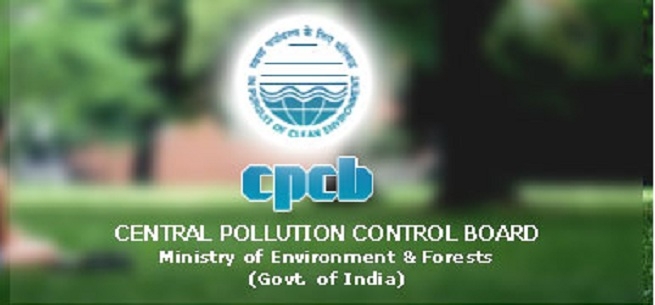CPCB invites entries to identify solutions for Ambient Air Pollution
| Date :25-Nov-2020 |

Staff Reporter :
Central Pollution Control Board (CPCB) has invited proposals for technology challenge for identifying and promoting solutions for mitigating Ambient Air Pollution in the country. The aim for this challenge is to create scope, scale and foster–technological and business solutions to control or abate urban ambient air pollution. Interested innovators, individuals, consortium partners, companies, academic institutions, research and development centres, civil society organisations (NGOs) and municipal bodies can participate in this challenge and can provide innovative technical solutions for control or abatement of urban ambient air pollution for in situ pollution control.
The challenge is open to all. Interested applicants can fill up the application form available at www.cpcb.nic.in. The challenge will remain open from 10 am on December 1, 2020 to 5.30 pm on March 15, 2021. Rapid urbanisation in the country is putting incessant pressure on ambient air quality in the cities. Air quality management in dense urban pockets becomes a challenge for city agencies. Air pollution is known to impact human health and the International Agency for Research on Cancer (IARC) classifies outdoor air pollution as a carcinogen to humans. In pursuit to maintain optimum air quality for the citizens, Ministry to Environment Forests and Climate Change (MoEF&CC), Government of India, has notified National Ambient Air Quality Standards (NAAQS) in 2009 indicating threshold limits for pollutants in ambient air. Megacities are becoming congested, clogged, polluted.
The CPCB has identified 122 such cities termed as non-attainment cities which exceed the prescribed NAAQS based on air quality data from 2011-15 and 2014-18. Among the list of 122 cities, four cities of Vidarbha including Nagpur are also there. Identify technological as well as business process innovations; Endorse viable business models that are suitable for a different size, geographies, and class of cities; Pilot test and handhold to scale the shortlisted technologies/solutions in select project cities; and Bridge the gap between innovators/manufacturers and beneficiaries that is urban local bodies (ULBs) and citizens are the objectives behind this challenge.
Participants are encouraged to provide technology solutions that address the problems by augmenting already available technologies in the market, and propose robust business models for collection/suppression of dust generated, management of dust collected in high dust emission zones in a cost - effective manner in Indian cities.
